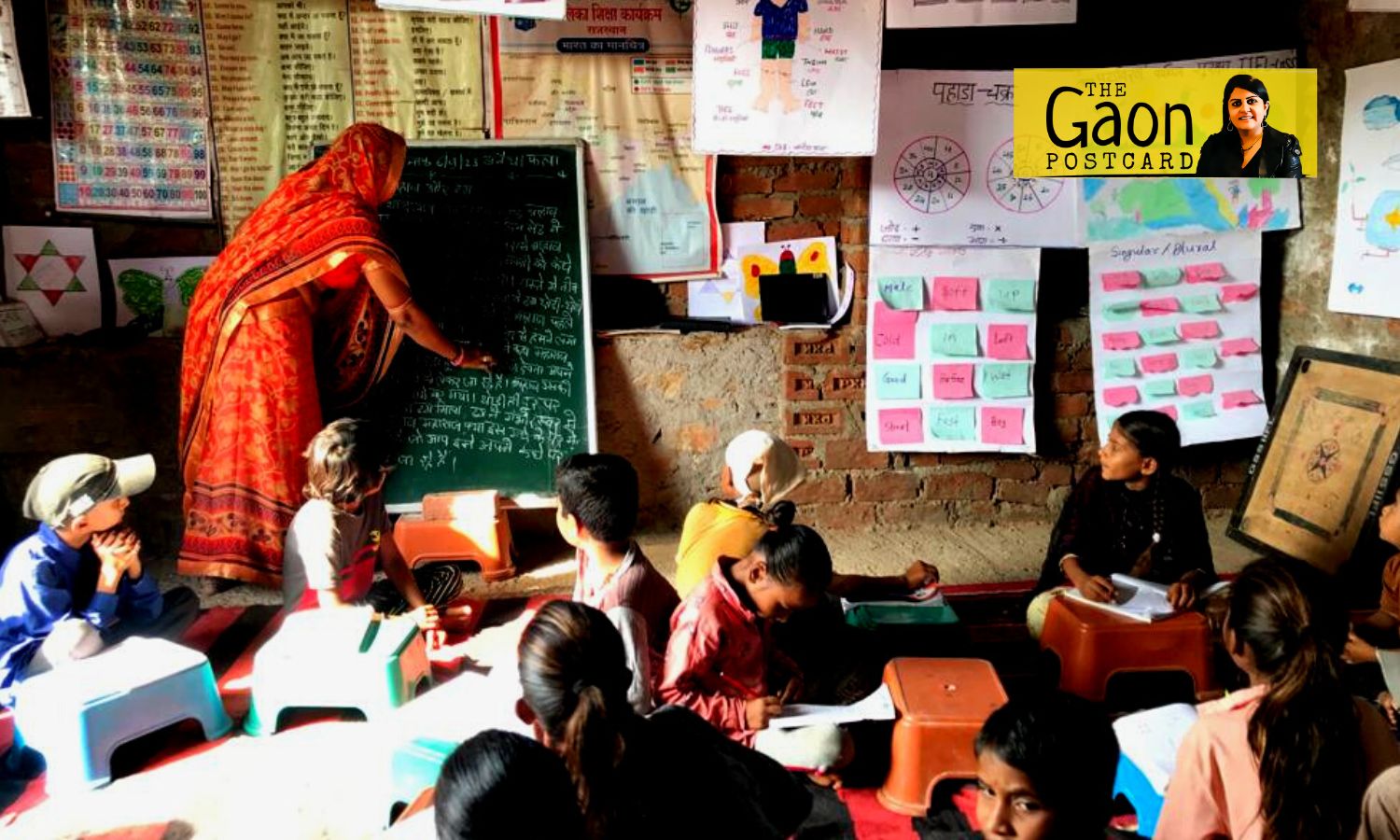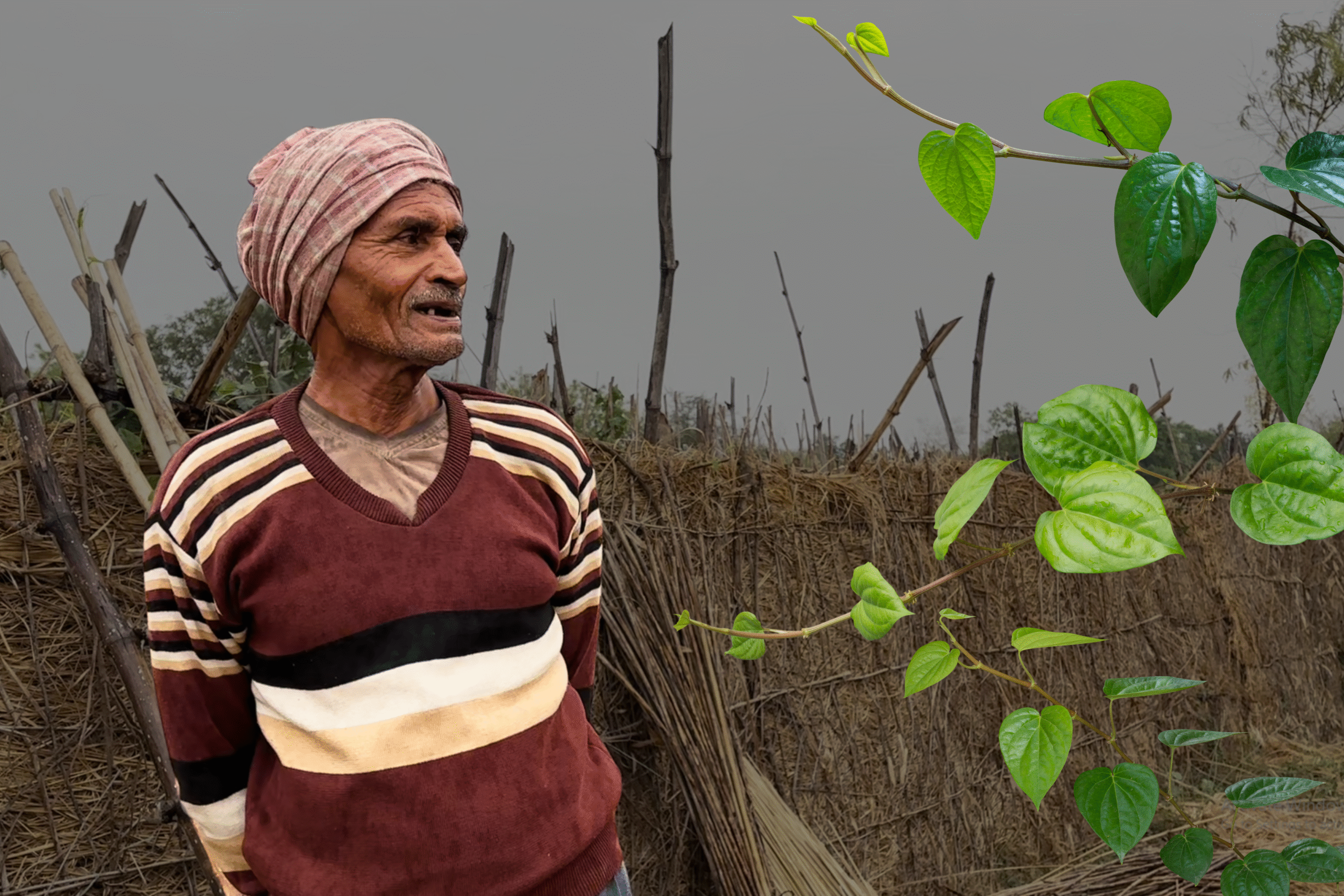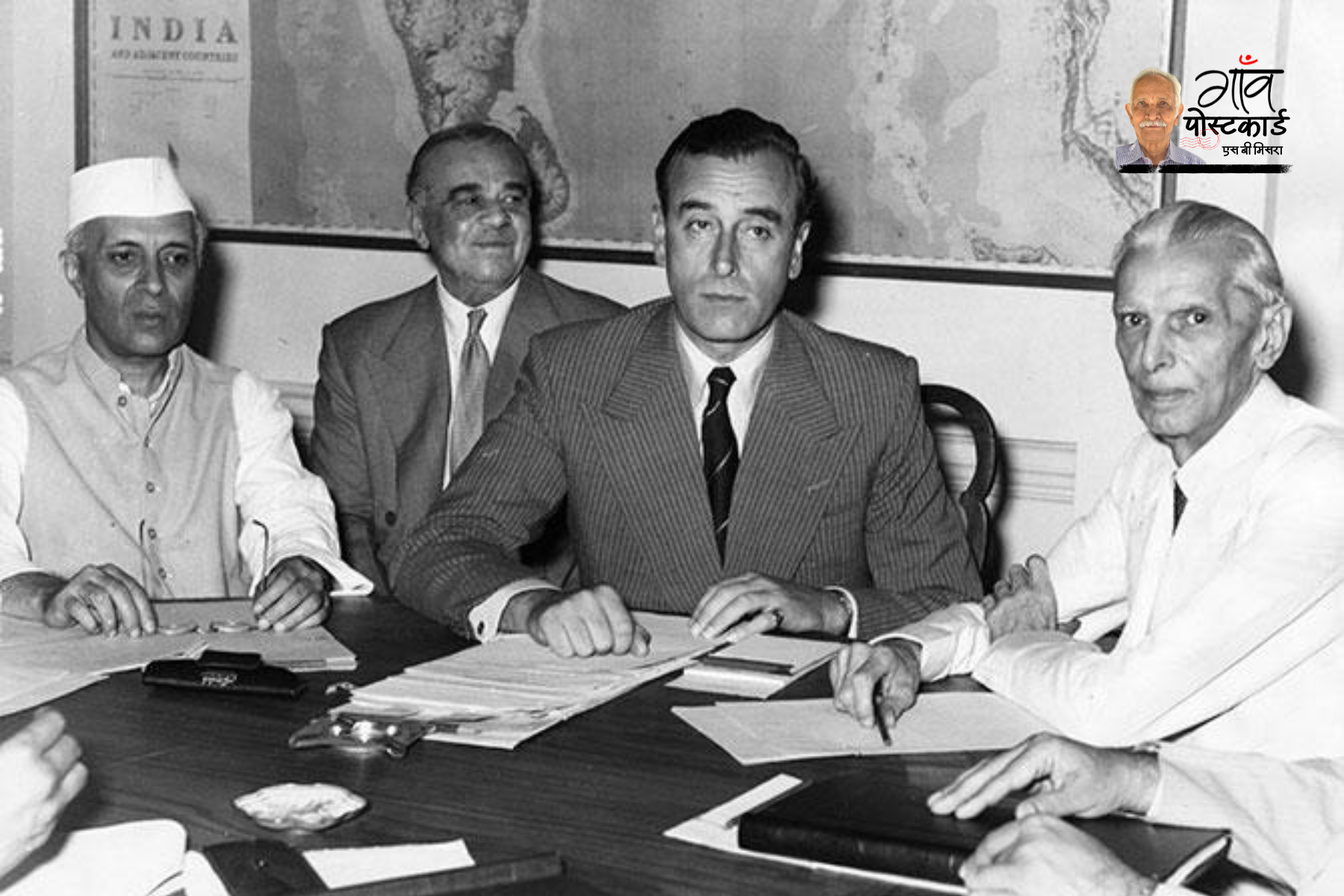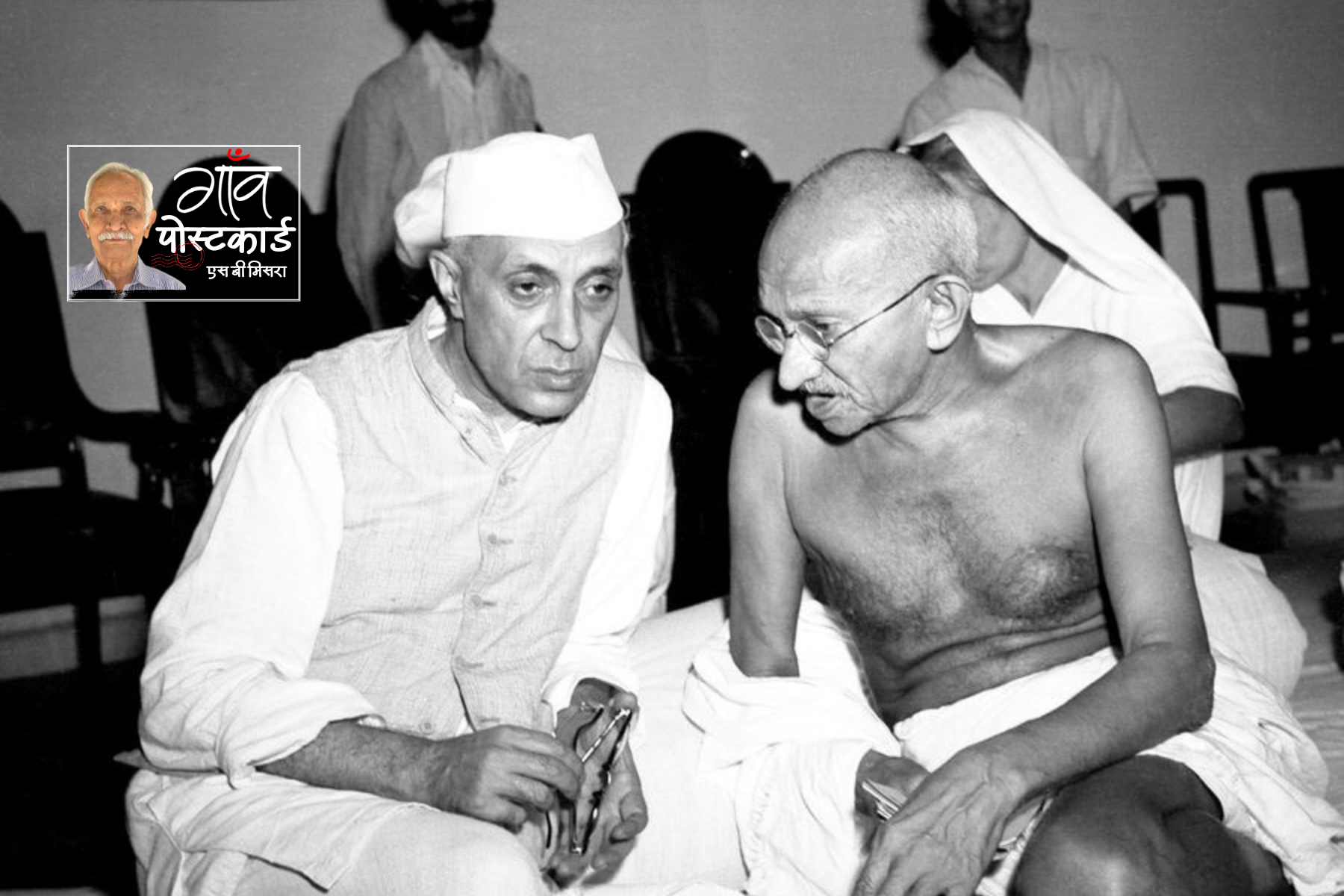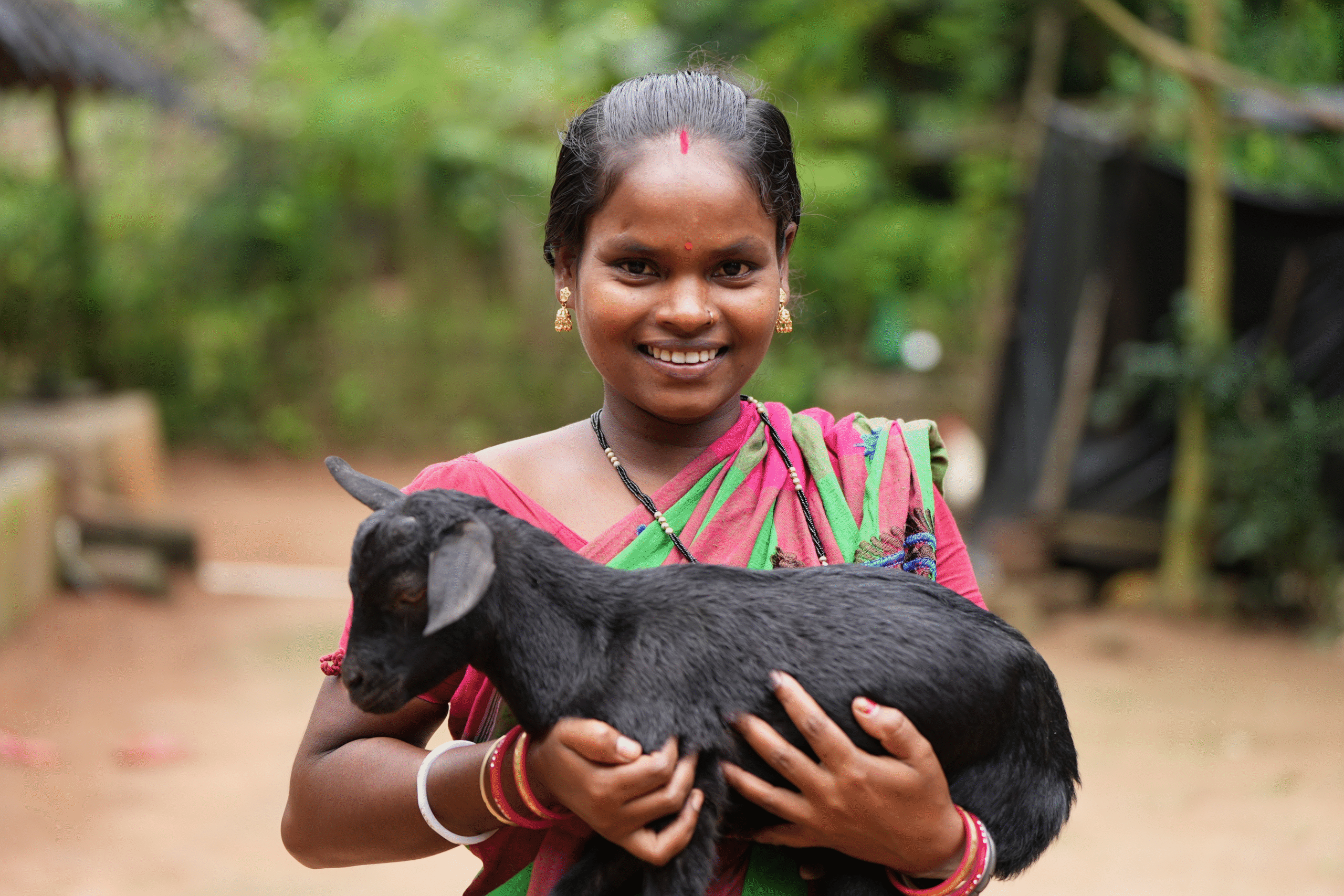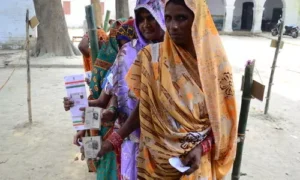Udaipur, Rajasthan
Udaipur. The land of heroic Mewar Kings, their magnificent palaces, and sparkling lakes. Of colourful pagadis (turbans), ancient musical instruments, and stories and songs of valour.
But behind these beautiful things lie another reality, usually not immediately visible to the eye.
Villages in Udaipur district located in the lap of the Aravalli range in south central Rajasthan are also home to child marriage, high illiteracy rates especially amongst women, and rampant malnourishment and gender discrimination. More so amongst its tribal Meena and Bhil communities.
Tribal villages in the district are spread far and wide with miles separating two hamlets (dhani). Inhabitants of the villages in forest areas of Sarada block in the district face considerably more problems than the others.
Dabdra Fala is one such village located deep inside a forest of tall sagwan (teak) trees and is home to the Meena tribal community. Four-wheelers are useless on the kachcha road leading uphill to the village and the only feasible transport is a bike, and that is how I got there last month.
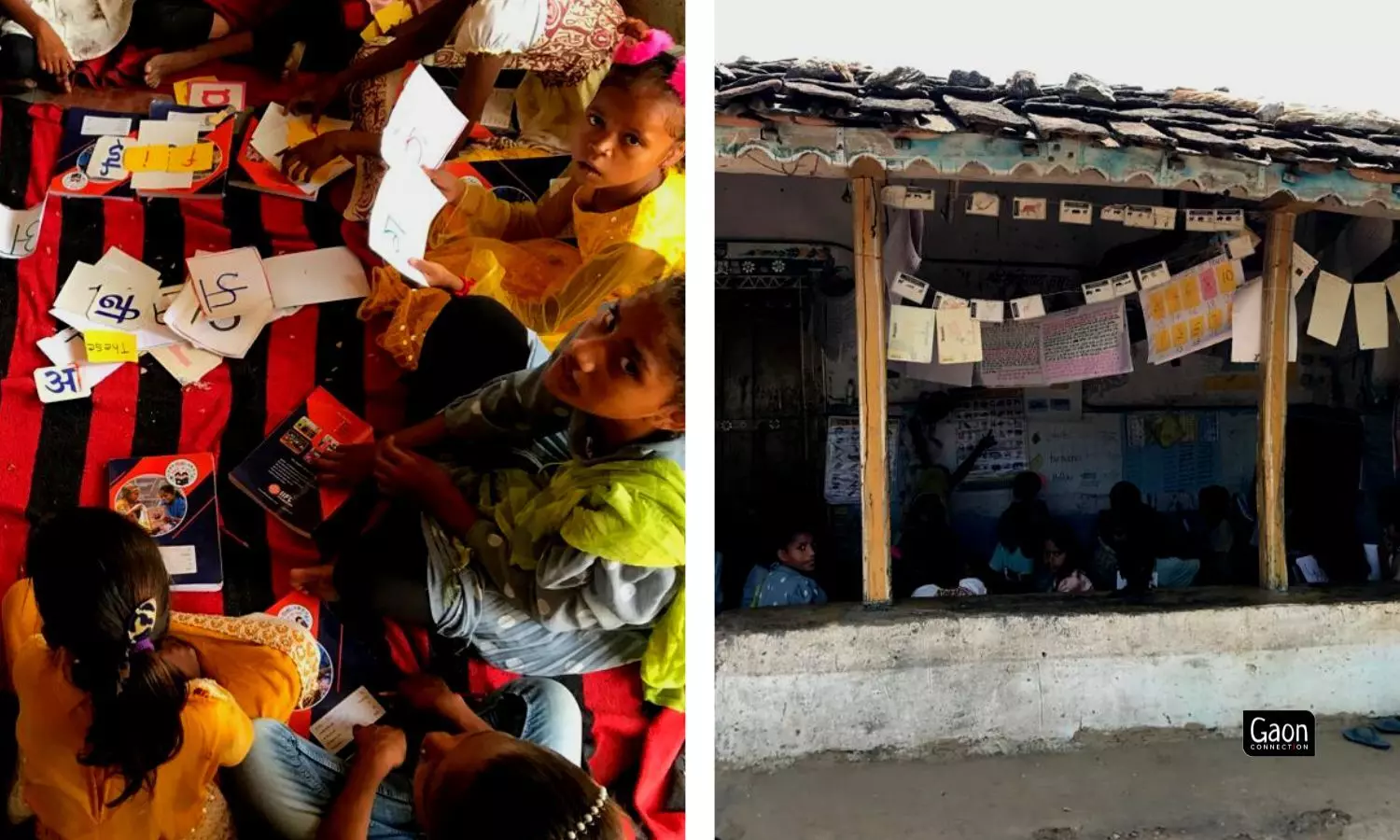
The children between the ages of 4 & 14 were busy forming words in Hindi using akshars or letters written on sheets of papers.
Also Read: Teacher’s Day: The journey of Teacher Connection by Gaon Connection
The first sight of the village is captivating with a deep nallah (a seasonal river), gurgling by its side. A hut with a sloped roof and a verandah stood on one side with a group of children gathered around.
There were charts and posters hanging from the verandah railings, and a blackboard leaned against a wall. The children between the ages of four and 14 were busy forming words in Hindi using akshars or letters written on sheets of papers spread out before them on a durrie. Sugna Meena, their daksha, guided them.
Dakshas are rural teachers, trained and empowered as part of the Sakhiyon Ki Baadi initiative of IIFL Foundation, which works towards eradicating girl child illiteracy in Rajasthan.
Sakhiyon Ki Baadi provides a community based non-formal learning centre for rural girls who live in far flung villages of the state. These students are also linked to formal education and are helped to get into government schools.
Without much prompting, Arpita and Antenna, two Meena tribe girls who study at Sakhiyon Ki Baadi in Dabdra Fala village, sang a song in their local Bagdi language.
It was a song about tribal girls like themselves, who tell their father that they won’t graze goats anymore but will go to school to study and fulfil their dreams.
#TeacherConnection मीणा समुदाय की अर्पिता और एंटीना बागड़ी बोली में एक लोकगीत सुना रहीं हैं, जिसमें वो अपने पिता से कह रही हैं- “बप्पा हम बकरियाँ चराने नहीं जाना चाहते, हम पढ़ाई के लिए स्कूल जाना चाहते हैं।”
दादराफला गाँव, सराड़ा ब्लॉक, उदयपुर, राजस्थान
: @JamwalNidhi pic.twitter.com/HbeCg4XHwR
— GaonConnection (@GaonConnection) September 8, 2023
Education remains a dream for them as schools are located far away and many families do not feel it safe to send their daughters to schools far away. Local villagers said that even now, Meena girls, as young as 14-15 years old, are married off.
The nearest government school from Dabdra Fala village is over three kilometres away, and students have to cross the nullah and walk through a dense forest to reach the school. No wonder then that only a handful of older children from the village go to the government school. Another 30 of them study at Sakhiyon Ki Baadi which was begun in their village in 2018.
Finding teachers in remote villages of Rajasthan isn’t easy. Sakhiyon Ki Baadi has therefore adopted a unique approach where it selects a daksha from the local community who is educated, and then trains her to impart education to rural children, a majority of whom are girls.
For instance, Seema is a daksha at Sakhiyon Ki Baadi centre at Baneya Fala village. From the Meena tribe herself from the same village, she has completed her B.A and B.Ed. She knows the local Mewari language and that helps her build rapport with the children, most of whom are first generation learners.
Seema prepares daily plans to teach the 30 children who come to the centre. There are weekly plans, and learning materials that have been specially developed by IIFL Foundation keeping in mind the needs of the local children.
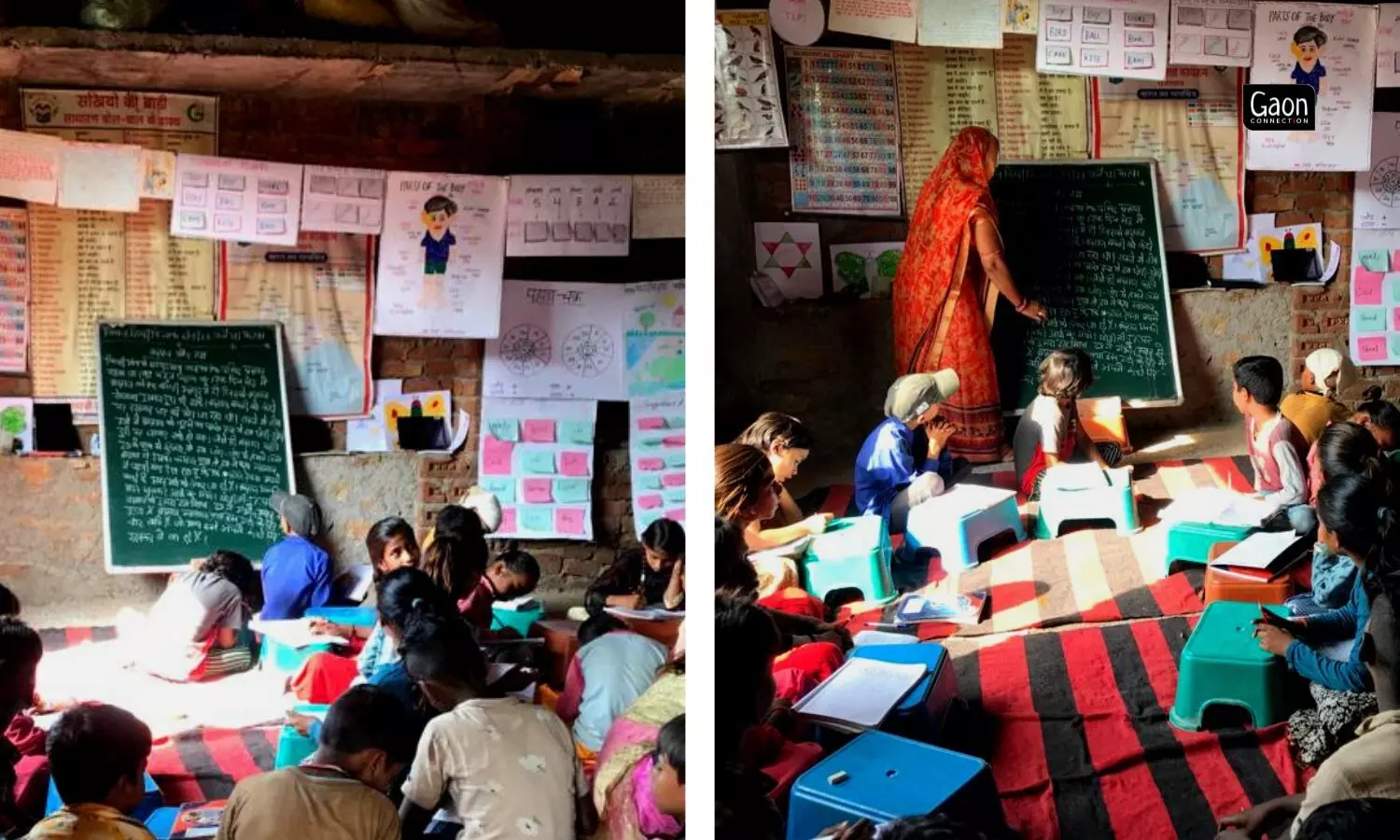
Seema is a daksha at Sakhiyon Ki Baadi centre at Baneya Fala village who prepares daily plans to teach the 30 children who come to the centre.
The day I visited the centre, Seema was narrating a Hindi story of a pundit and his cow to the children who sat on the floor on durrie hanging on to her every word. Every now and then, they would repeat what she said. This was their way of learning to speak and write Hindi and English.
Twelve-year-old Khushboo declared to me that she wanted to become a ‘madam’ (teacher). Ritika, another Meena tribe girl at the centre, said she wanted to become a ‘sister’ (nurse). Anjali said she wanted to join the police force. Education is helping girls dream big in life.
Also Read: Manzil: Destination Empowerment
There are 50 Sakhiyon Ki Baadi centres at Saranda block of Udaipur district alone. And a total of 1,164 such learning centres across 11 districts of the state with an enrolment of 35,964 girls.
IIFL Foundation is also working with the state government and supporting its Maa Baadi centres, which are government schools dedicated for tribal children. At Maa Baadi schools, the school infrastructure and teachers are from the government, but the Foundation has been providing support to some tribal schools in terms of revamping the school, providing LCD TVs, solar lighting systems, etc.
One such Maa Baadi centre is located in Bilaghati village. With its brightly painted walls, an open air play zone (made using discarded tyres), and a classroom with a TV, it doesn’t seem like a government school for tribal children, which are often in shambles.
Goooooood morneeeeeeng, sir!
Fold your hands and close your eyes. It’s prayer time at Maa Baadi in Bilaghati village, Udaipur, Rajasthan
The school has 30 Meena tribe kids, and is run by the tribal dept. Devi Lal Meena is their teacher. #TeacherConnection
@JamwalNidhi pic.twitter.com/nloalv3wJ6
— Gaon Connection English (@GaonConnectionE) September 8, 2023
Devi Lal Meena has been teaching at Bilaghati’s Maa Baadi centre since 2011. He said that tribal kids from as far as two to three kilometres come to the school which has just one classroom, that accommodates 30 students from classes one to four.
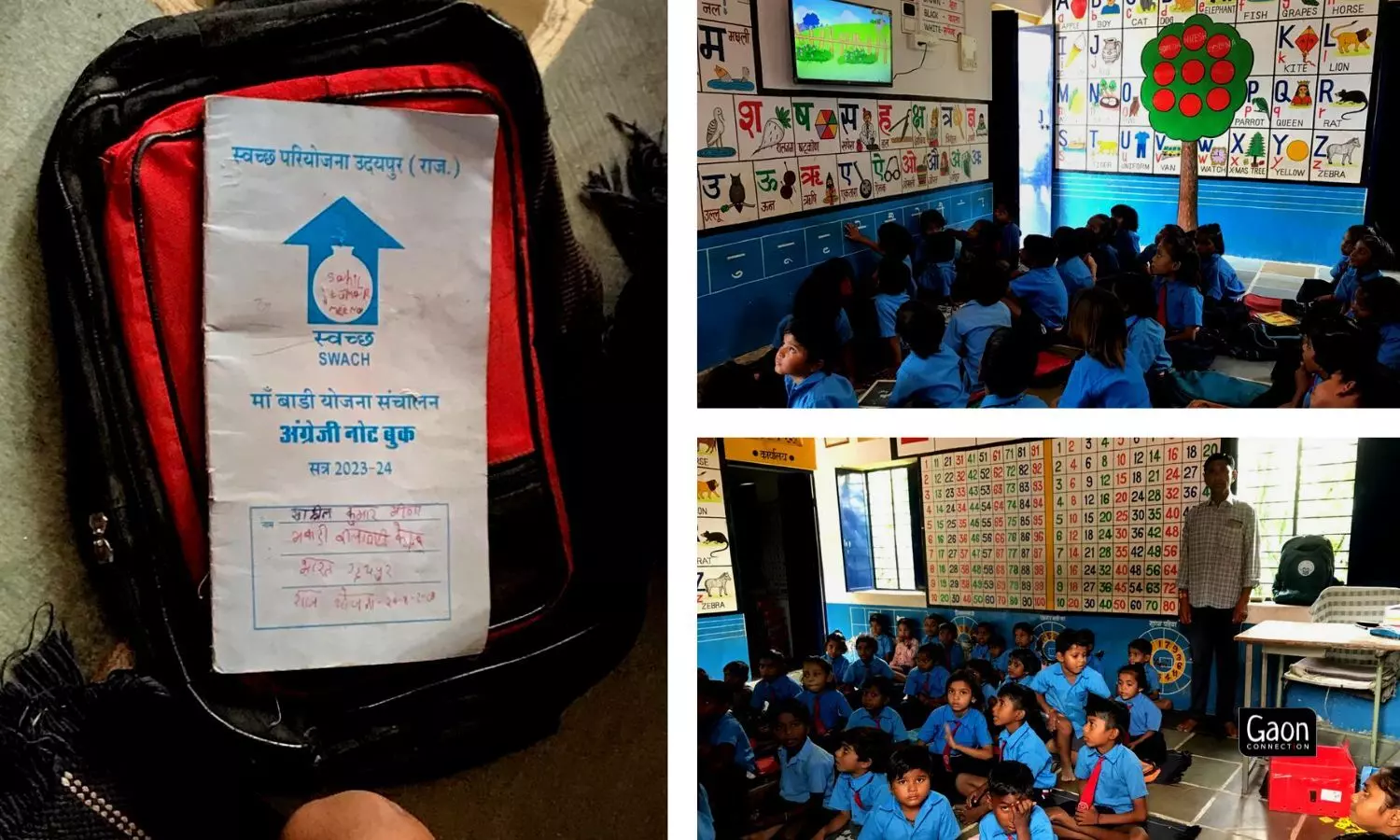
This is Maa Baadi centre located in Bilaghati village. With its brightly painted walls and a classroom with a TV, it doesn’t seem like a government school for tribal children, which are often in shambles.
The classroom is a burst of colours with painted walls, charts, posters and an LCD screen on which students learn rhymes, stories and do other activities. I smiled as the Hindi version of ‘Old MacDonald Had A Farm’ played and the rural children sang it lustily.
The demand for education in the Meena community is on the rise, said teacher Devi Lal. For instance, his school was allowed to enrol only 30 students but said many more children want to come to school. He said that they often did turn up and he never turned them away. But, he said, the space is limited and so are resources provided by the government, including breakfast, lunch and an evening snack.
These Maa Baadi centres function from 9:30 am till 5 pm so that tribal children get to eat three free healthy meals a day at school.
“Parents now want to send their kids to school. Children also like to come to school and they often come even on a Sunday,” said Devi Lal, adding that if a provision for admitting more students is made, it would benefit the cause of education immensely.
Education is a fundamental right in our country. And initiatives like Sakhiyon Ki Baadi are trying to uphold that right, one child at a time.
Nidhi Jamwal is Managing Editor of Gaon Connection. Views are personal.

